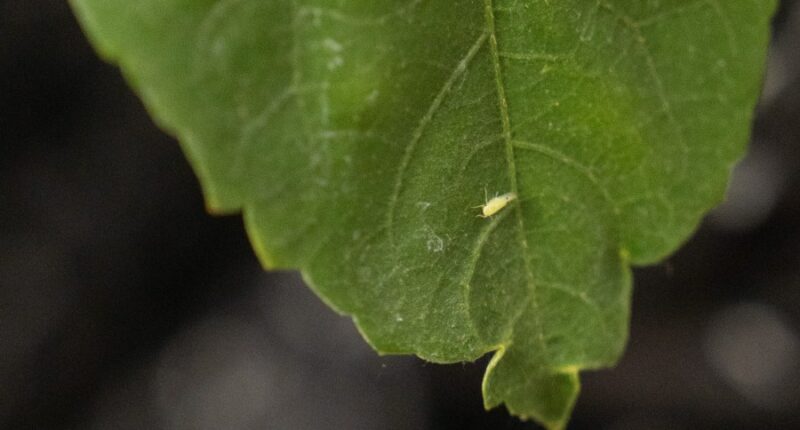Share this @internewscast.com
Texas Agriculture Commissioner Sid Miller alerted the public on Monday about the arrival of an “invasive pest” in Texas, impacting areas like Cedar Park. This pest poses the risk of causing significant plant infestations and “economic losses if it remains unmanaged.”
The cotton jassid targets a wide variety of plant hosts, including “cotton, okra, eggplant, sunflower, hibiscus, and numerous weeds,” as stated in a press release from Miller’s office.
By August, the pest had been identified on “retail hibiscus in several areas such as College Station, McAllen, Weslaco, Harlingen, Victoria, Cedar Park, Waco, El Paso, and Longview,” according to the release.

Individuals who recently bought “hibiscus or other plants in the cotton family from retail stores” are advised to inspect their plants meticulously for any signs of infestation.
Miller emphasized in the release, “The two-spotted leafhopper, also known as the cotton jassid, presents a major threat to Texas agriculture, especially to our cotton producers. Our response is grounded in risk assessment, scientific insights, and collaboration with the industry. We are determined to protect Texas farmers, ranchers, and our vital multibillion-dollar cotton industry. To secure this sector, we are acting swiftly and decisively, utilizing all our resources to stop this pest from establishing itself in our state,” he stated.
The office of Miller, in conjunction with the Texas Department of Agriculture (TDA), has “mandated the detection and destruction of infested hibiscus and any associated cotton family plants from the identified nurseries.”
“TDA is working closely with the U.S. Department of Agriculture, Texas A&M AgriLife Extension, cotton producer organizations, and the Texas Nursery & Landscape Association to assess the extent of the threat. Outreach and education materials on the cotton jassid are being distributed to growers, retailers, and the public to help identify and report suspected infestations,” the release said.
Those who suspect an infestation can contact TDA at 1 (800) TELL TDA or contact TDA’s regional offices, which can be found online.














